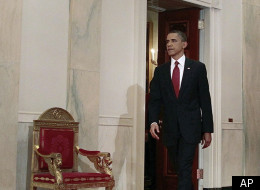 A couple of history teachers at my school suspended their planned lessons yesterday and swiftly collaborated on a lesson around the raid on Osama bin Laden's compound that resulted in his death. I was impressed by how quickly they moved, but wasn't planning on doing anything myself; I'm not a social studies teacher anymore, anyway. But as it turned out, one of my classes is an elective in which we deal with a lot of historical content, and many of my students wanted to talk about it.
A couple of history teachers at my school suspended their planned lessons yesterday and swiftly collaborated on a lesson around the raid on Osama bin Laden's compound that resulted in his death. I was impressed by how quickly they moved, but wasn't planning on doing anything myself; I'm not a social studies teacher anymore, anyway. But as it turned out, one of my classes is an elective in which we deal with a lot of historical content, and many of my students wanted to talk about it.So, in the spirit of teachable moments, we did. A few of them re-watched videos of Obama's late-night address from Sunday. Another noticed that the Times homepage had been redesigned to accommodate the volume of bin Laden coverage. One or two of the boys wanted to know more about how the raid had happened, fascinated by what the Navy SEALs must have had to do to accomplish this mission. But my favorite moment was between two kids as one wrapped up watching a CNN story about the raid.
"I'm glad we got him," the first student said.
"So what?" said student #2. "It doesn't change anything. The wars aren't going to be over soon or anything. There's still people who are going to be terrorists. I don't think it matters."
"Yeah, but we got HIM," the first student countered. "We finally got the 9/11 guy. I think that's a big deal."
"It won't bring all those people back, though," student #2 returned. "And all those soldiers that died trying to get him and stuff. I just don't think it's this big thing."
Rather than take a position on their conversation, I just watched and listened. They brought out the various sides of the argument well enough on their own that I didn't think I needed to say anything.
Moments like this continue to thrill me as an educator. I love being surprised by what my students know and wonder without any prompting from me. In this instance, I was pleased to see them reflecting critically on the event and pondering what it means in a larger sense. I'm not saying this magic happens all the time--sometimes it's like pulling teeth, it's true--but when it happens, it's profound. And I don't think it's the kind of thing one teacher can teach; I think it takes years of teaching by different teachers in a reflective critical vein to make this happen.







